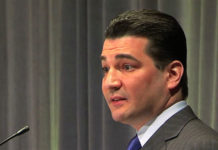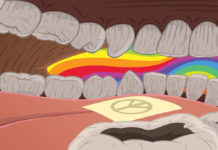An intervention consultant has been implementing a novel approach to help residents in St. Paul transition into addiction treatment.
After seeing how a traditional intervention could do more harm to an individual requiring addiction treatment, Family Recovery Resource Experts (FRrē) President Marc Hertz decided that a family-centered approach may be more beneficial to those affected by the national epidemic.
The opioid crisis has greatly impacted families in St. Paul and other state cities. According to preliminary data from the Minnesota Department of Health, 694 drug-overdose deaths — 401 fatalities were opioid-related — occurred in the state during 2017.
Many intervention specialists still utilize the Johnson Model of Intervention, which was developed by Vernon Johnson in the 1960s. This type of intervention involves a group of peers who stage a confrontation with the assistance of an intervention specialist for a loved one with a substance use disorder. However, as the field of psychology and treatment models have advanced, many clinicians have experimented with alternative intervention approaches.
FRrē specifically offers a model that veers away from focusing on the person’s substance use disorder in favor of family-focused recovery.
During an initial consultation, a FRrē representative will request information about the circumstances that led to a person’s substance abuse and how the family dynamic has been affected. The information is used to customize a plan for the family’s specific situation.
From there families have the option to participate in family workshops and other services that educate them on substance use disorders and goal-oriented approaches designed to positively influence relationship dynamics and encourage family members to seek addiction treatment. Some topics that may be addressed include negative beliefs relatives may have about addiction, ways in which certain behaviors within the family unit encourage substance use and means to encourage treatment.
What FRrē representatives believe really helps this approach is the fact that it focuses on relationships and how to improve them. The non-confrontational intervention method also helps reduce the stigma of addiction toward individuals.
Occasionally, Herz or other FRrē specialists may not meet with the individuals in question. The ‘hands-off’ approach allows clients to take the lessons and intervention skills they’ve learned from the workshops and apply them at home as a way to encourage their loved on to enter addiction treatment. In case clients need assistance, they are provided the contact information of FRrē’s therapists who can respond in real time.
In workshops where the individual in question is present with their relatives, all of them are asked what they are willing to commit to in order to move forward. Once people are willing to enter treatment, FRrē staff will refer them to a local outpatient or inpatient program that best suits their situation.
In some cases, FRrē staff are prepared to stage a more traditional intervention. Certain circumstances may demand this approach, such as when substance abuse leads to the endangerment of the self or others.
Multiple studies have shown positive results regarding the presence of family support in addiction treatment. One study showed that multidimensional family therapy had a positive impact on teens going through adolescent drug court.

















